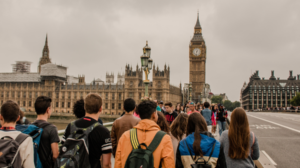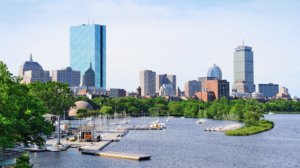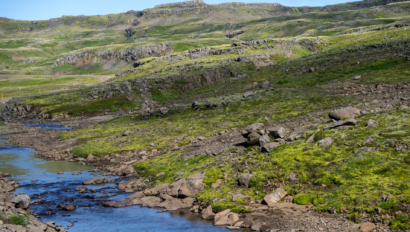Why Should You Study Abroad?
Chances are, if you know somebody who has studied abroad, they like to talk about it – a lot. It might seem like the only thing they ever talk about, to the point that you know all their stories just as well as they do. Although the stereotype that students who study abroad never shut up about it is partially true, there are good reasons for that. Aside from international students, of course, most college students in the USA have never lived abroad; many of them, myself included, have lived in the same small town or city their entire life, so moving to another country is an incredibly new and fascinating experience. Their stories may get old to you, but for the students who lived them, they’re some of their most cherished memories, and if you haven’t lived abroad yourself, it could be hard to understand why.
Anyone who has done this could give you a million reasons to do it yourself: to learn a foreign language; to enrich yourself with a new culture; to see the world from a different perspective; to eat amazing food and see the wonders of the world. All of these are, without a doubt, great reasons to travel or live somewhere new, but let’s face it, they’re obvious. Of course living in another country would let you experience these things – they’re basically impossible to avoid. So today I want to talk not about why someone should study abroad, but instead why you should study abroad. And the only way to answer that question is with another one: what do you want?
That seems like a pretty simple question, right? Yes and no. Maybe you just want to eat good food and escape the snowy Bostonian winter. In that case, great! Pick somewhere with interesting cuisine and warm weather, and you’re all set! But maybe you want something more. Maybe you’ve lived in a tiny, boring, rural town of 1,200 people your entire life and you want to escape the clutches of American society and get lost in the wonders of the Earth. If that’s the case, you’ve probably got a lot more to think about. Sure, you could go to Vancouver or London or Sydney, “escape” America for a few months, and then come home and be perfectly happy with your experience.
But if you’re truly seeking a culture shock, something that will turn your world upside down and inside out, these cities might not be exotic enough to fit the bill. Perhaps you should go somewhere “crazy” and totally foreign, like Armenia, Cambodia, or Paraguay. On the other hand, you might not be looking for such an insane culture shock, and London could be the best choice! While you’re thinking about what you want to get from your study abroad, you should also consider why you want it. You can go anywhere in the world to meet amazing people, learn new things, and see beautiful sights, but a student who studies in, say, Shanghai, is going to have very different stories when they come home compared to the student who lived in Copenhagen.
Honestly, the majority of people reading this are probably sighing a loud well, duh in their head right now. If you’re one of those people, that’s fantastic! You’ll probably have an awesome time abroad. When I first went abroad, however, I really wish that someone had told me all this. I had become a bit stir crazy living in the United States, and I longed to see the world. I didn’t really care which parts of it, I just wanted to see everything, so when my first co-op cycle came around I excitedly and hastily applied for every global co-op I could send out a resume to. Shortly after applying, a school in Ulaanbaatar, Mongolia reached out to me for an interview, and three days later they had offered me a job as an English teacher. I accepted immediately, as a wave of relief washed over me that I would no longer have to worry about securing an internship.
Eventually, that relief turned to regret. Before I departed, I had known that Ulaanbaatar was the coldest capital city in the world, reaching -40 degrees Fahrenheit every single night in the winter. I also knew that it was the third most polluted city in the world, due to the coal that families burn to keep warm in the winter. So I bought some heavy winter clothing and a face mask and assumed that I was totally prepared; oh, how wrong I was. As excited as I had been to explore a new and totally alien culture, I hadn’t realized just how difficult the adjustment period would be. When I landed in Mongolia, I was greeted with 20MPH winds and -36 degree weather, alongside a menagerie of Cyrillic signs that I couldn’t read whatsoever, let alone see through the dense clouds of smog. I quickly learned that my role as an English teacher was somewhat more vital than I had realized, as almost nobody whom I met spoke a single word of English. Aside from a few other interns at my school, I was alone, and very, very far from home. It took a long time, but I did manage to adjust. I hardly learned any Mongolian, but I made friends with the few people around me who spoke English, and I gradually started to enjoy my life in UB.
So I’m glad now that I went to Mongolia. As challenging and intense as it was, it was an incredible learning experience that I’ll probably never be able to match. In hindsight, it would have been much better for my own mental health if I had chosen a less distant place for my first time living abroad, probably somewhere with a larger English-speaking population. In Ulaanbaatar, I learned that I was not invincible – that the world would not always be as welcoming as I’d imagined. Ultimately I made it through and I’m better for it now, but the six months I spent there were neither what I expected nor what I wanted for quite a while. Thus, I urge you, carefully consider your decisions before you dive head-first into something that might not be right for you. The Earth is a magnificent place, but everyone is different, and the most important thing you can do is to know yourself.









